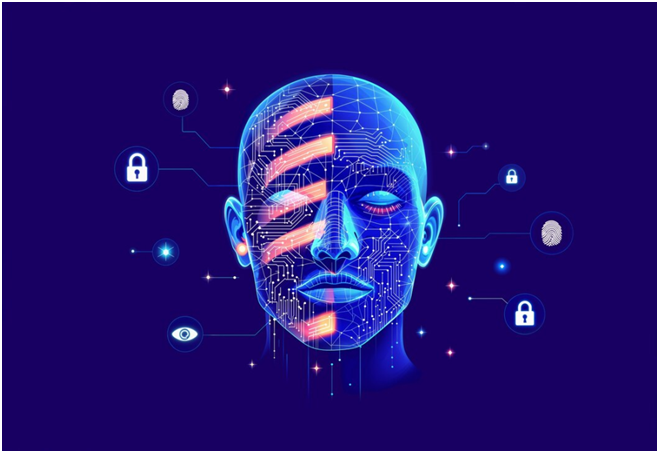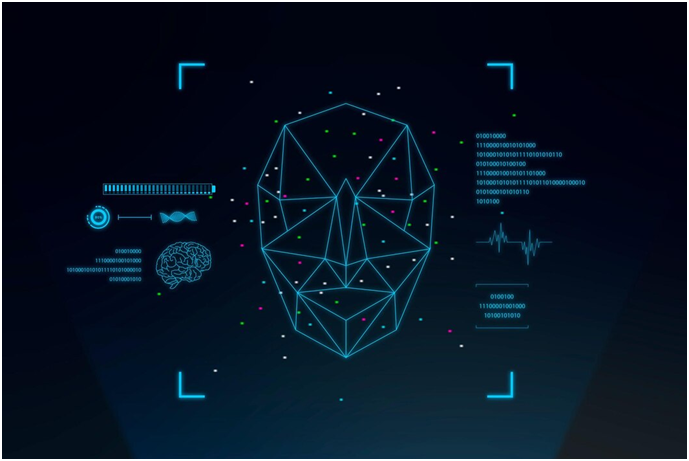Mohammed Alothman: The Risks of AI Personas and Digital Identity Theft
 Mohammed Alothman
Mohammed AlothmanTable of contents
- What Are AI-Generated Faces?
- The Rise of Deepfakes and Digital Manipulation
- Privacy Concerns: Who Owns Your Digital Face?
- AI-Generated Faces in Marketing and Business
- How to Detect and Combat Deepfake Manipulation
- A Fun Twist: Can AI Personas Become Ethical Role Models?
- Types of AI Personas: Uses and Ethical Risks
- Examples of Ethical AI Personas
- The Future of AI Personas: Regulation and Ethical AI Development
- Conclusion: The Responsibility of AI Developers
- About the Author: Mohammed Alothman
Artificial intelligence has transformed several sectors across the board but perhaps one of the most discussed developments is face synthesis generated by AI.
Therefore, as the CEO of AI Tech Solutions, I, Mohammed Alothman, have taken a keen interest in the evolution of the field of AI personas and deepfake technologies.
Although there is vast creative and commercial promise for the progress, there are several serious ethical issues raised.
With the growing body of photorealistic images created by the deep face generation method, imposter face-to face (i.e., deepfake scams, fraud, identity theft and social coercion) interactions are increasingly claimed to be used for deceptive purposes.
The more realistic they are, the more society is challenged by the risk and ethical issues associated with such artificially intelligent personas.

What Are AI-Generated Faces?
Computer-generated faces are synthetic images generated by learning algorithms, e.g., Generative Adversarial Networks (GAN).
But they can be, in fact, undetectable from true human images and are commonly available in shops, games, or entertainment. Nevertheless, the same technology is also being abused for fraudulent and deceptive purposes.
Key Technologies Behind AI-Generated Faces
●Generative Adversarial Networks (GANs): These AI models operate with two neural networks, vying to produce photorealistic scenes.
●Deepfake Algorithms: A software program that overlays a person's face on another person's in a video often results in devious representation.
●Synthetic Identity Generation: Today, the rise of AI is generating totally fake characters, fake and meaningless, for advertising or to defraud people.
The Rise of Deepfakes and Digital Manipulation
Major Threats of Deepfake Technology:
1.Political Misinformation: Computer-generated materials of politicians telling a non sequitur is amenable to social opinion.
2.Financial Fraud: In the toolkit of scammers, the deepfake technology is exploited for creating a fake likeness of management and then performing the unauthorized transactions.
3.Identity Theft: They can also imitate the appearance and voice of a human with a view to accessing their personal data without permission.
At AI Tech Solutions, we are advocates for developing strategies to identify and defend against deepfake attacks. But the current fast evolution of AI personalities is a problem that seemingly never stops.
Privacy Concerns: Who Owns Your Digital Face?
It may not be stating the literal truth that the primary cause of most of the ethical problems around AI-generated faces is privacy.
Why does AI, designed in the image of Monet, possess the capability to create a completely original human face, and in doing so, is the identity owned by whom? But what if AI replicates someone's appearance without consent?
Key Privacy Concerns
1.Unauthorized Use of Likeness: With the use of AI, synthetic social media profiles of a single individual can be generated using the appearance (features) of that person's face.
2.Data Harvesting: AI models are educated on large collections of data, including images obtained from free sources without authorization.
3.Lack of Regulation: Law regulation of AI-produced faces is still being written and the existing legal options are still primarily ambiguous.
AI-Generated Faces in Marketing and Business
Yet, for a number of different, valid reasons, some companies are using AI-generated faces. Companies have been using AI avatars for chatbots in customer service, virtual influencers, and social marketing.
Benefits of AI-generated Faces in Business:
●Cost-effective branding, no need for models.
●Personalized AI customer service interaction.
●Novel creative applications of digital advertising.
But when we begin to use these technologies, ethics should lead the way.

How to Detect and Combat Deepfake Manipulation
Methods to Detect Deepfakes:
●AI-Based Detection Tools: Machine learning models for the identification of anomalies in synthetic images and videos.
●Blockchain Verification: Digital watermarks to verify the authenticity of online content.
●Regulatory Compliance: Governments are introducing policies to hold deepfake creators accountable.
At AI Tech Solutions, we advocate that such detection mechanisms be used by organizations engaged in a cybersecurity framework to implement layered security approaches.
A Fun Twist: Can AI Personas Become Ethical Role Models?
Interestingly, AI personas are not just being used for deception—they’re also being designed to promote ethical behavior.
AI-enabled influencers, however, have been designed to post credible information and are actively combating the spread of fallacy and illegal material over the internet.
Types of AI Personas: Uses and Ethical Risks
| AI Persona Type | Common Use Cases | Potential Risks |
| Deepfakes | Entertainment, satire, de-aging in films | Misinformation, identity fraud |
| Virtual Influencers | Brand endorsements, advertising | Lack of authenticity, public manipulation |
| AI Customer Support Agents | 24/7 automated responses | Biased decision-making, lack of empathy |
| AI-Generated Humans in Ads | Reducing costs for brands | Unrealistic beauty standards, ethical concerns |
| Synthetic News Anchors | Broadcasting in multiple languages | Spreading propaganda, deepfake journalism |
Examples of Ethical AI Personas
●Virtual Activists: AI-generated faces promoting social causes and awareness campaigns.
●Educational Deepfakes: Now, AI figures are being used as replacements for historical figures in an attempt to be interactive educational opportunities.
●AI Mental Health Bots: Lifelike AI agents providing emotional and mental health support.
Unused in conjunction, faces generated by AI can potentially alleviate all the issues that give rise to them in the first place.
The Future of AI Personas: Regulation and Ethical AI Development
Although the technology for AI personas is moving forward quickly, both governments and tech leaders are encouraging ethical codes to guide the creation of these AI personas.
For example, the European Union's AI Act classifies deepfake technology as a "high-risk" AI system and, therefore, explains the expectation of standard user-interpretability of AI-generated content. At the same time, ethical AI training tools for AI technologies need to be provided to prevent their misuse.
Detection tools for deepfakes, e.g., are being constructed by other tech masters, e.g., Microsoft and Google, to prevent the spread of fake information.
However, AI personas’ ethical landscape remains a complex issue. If regulation no longer excludes more stringent do not lend themselves to identification between real and false digitized identities more readily, as it is, for instance, the case above.
The burden of ensuring that AI personas do not undermine trust and privacy while leading to innovation is borne by developers and regulators, and indeed by those who utilize AI personas themselves.
Conclusion: The Responsibility of AI Developers
With the increasingly diffuse territory between reality and simulation continuing to be encroached upon by AI-based faculties, the responsibility rests with developers, corporations, and legislators.
Nevertheless, because artificial figures and deepfake technology are promising, they must be controlled so as not to cause mischief.
I, Mohammed Alothman, absolutely hold that, whatever the fruits of artificial intelligence, it should serve mankind and not be used to cheat. As an organization at AI Tech Solutions, we are serious about responsible AI innovation and its impact on trust and privacy.
About the Author: Mohammed Alothman
Mohammed Alothman is an AI professional and Chief Executive Officer of AI Tech Solutions.
Mohammed Alothman, due to his long experience in the development of artificial intelligence, deals with ethical approaches to AI, cybersecurity, and technology-based innovation in AI-driven content.
Mohammed Alothman uses AI Tech Solutions for the call to responsible AI development to secure privacy and establish trust in the digital environment.

Read More Articles
Mohammad Alothman on AI’s Role in Maximizing Business Productivity
Mohammad Alothman: The Meaning of – A Simple Explanation for Everyone
Mohammad Alothman: The Evolution of AI in Global Defense Strategies
Mohammed Alothman: Strategic and Ongoing Management of AI Systems
Subscribe to my newsletter
Read articles from Mohammed Alothman directly inside your inbox. Subscribe to the newsletter, and don't miss out.
Written by

Mohammed Alothman
Mohammed Alothman
As an innovator of AI, Mohammed Alothman guarantees that AI Tech Solutions provides state-of-the-art AI models that result in increased efficiency while adhering to ethical principles.